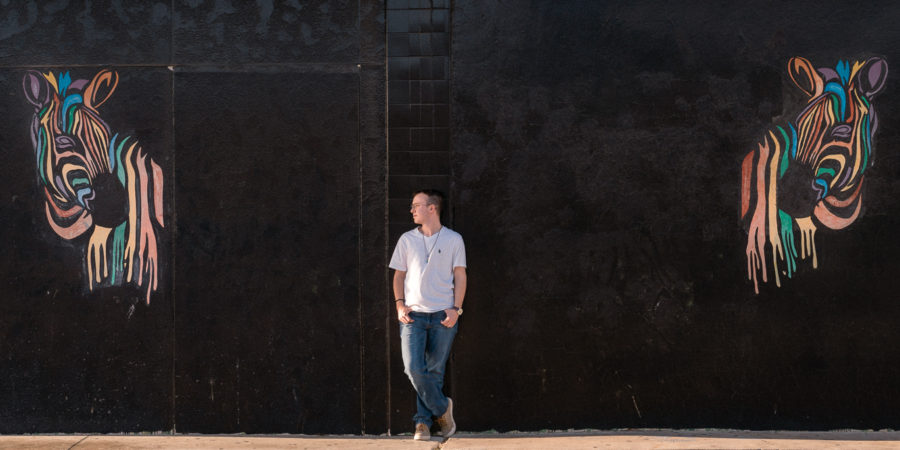Like many queer people, Matthew Teter has had several different coming outs.
Teter was assigned female at birth, but growing up in a Dallas, Texas, home with no gender roles, he felt free to be a tomboy. Many transgender people who are raised with traditional gender roles tell stories of being scolded as kids for expressing themselves in certain ways, such as a boy putting on a sister’s dress. This can cause damage and shame — but it can also help that person understand from a young age that there is something different about them, and that they perhaps weren’t assigned the correct gender at birth. Because Teter wasn’t raised in this type of environment and his parents let him express himself freely, there was no reason to think that anything was different.
After feeling attraction to female friends, Teter eventually came out as bi, and soon after, as a lesbian. But living out loud as a masculine lesbian still didn’t feel quite right, and Teter suffered from severe depression and suicidal tendencies.
As a teenager, Teter began to wonder if he was actually assigned the wrong gender at birth, but he didn’t have the language or experience to understand what he was feeling. He confessed his confusion to a close friend, who showed him a YouTube video of a trans man. Teter immediately saw himself in that person and realized he was transgender, which he believes saved his life — but also required another coming out to his parents. After some initial surprise, they were incredibly supportive and helped find him a groundbreaking clinic in Dallas that provided health care for trans youth.
Teter, now 21, has come to appreciate that his parents raised him without gender roles, even though it meant it took him a little longer to come to terms with his gender identity. He also later came out as queer, and in the process of finding himself, he’s become involved in advocacy for the LGBTQ community. Reflecting on how important the visibility of the one trans man in the YouTube video was for him, Teter tries to be visible in case he can be the same for anyone else. A junior at the University of Texas – San Antonio, Teter serves as an executive on the student LGBTQ+ organization and strives to make other queer or trans students feel included and welcome.
This is Teter’s story of realizing he was trans, coming out multiple times, and finding ways to increase trans visibility and help others in the LGBTQIA community who were once in his shoes.
Profiles in Pride: I know you have had more than one coming out. What was the first part of the process for you?
Matthew Teter: The first sort of coming out I had was when I was 13 and in seventh grade. I got grounded at one point and my parents had taken away my iPod touch, and I’d forgotten to clear my browsing history. I had a secret Facebook account where I was catfishing people as this 17-year-old bisexual guy. They were very confused and didn’t know how to deal with that, so they brought me into the room and were asking me questions. I was trying to pretend I hadn’t been caught doing anything. They kept asking questions and I kept trying to deny everything.
They said, “Are you gay?” And I said, “I don’t know, I think I’m bi.” It spilled out from there. At that point I questioned the idea of whether I liked girls or not; I knew I’d felt certain things about girls, especially with friends of mine. By the time I was 14 and in eighth grade, I was fully identifying as a lesbian. There was no real coming out; it just evolved that way. Once I said maybe I was bisexual, I felt more free to express my sexuality and explore it, so it just naturally developed, and everyone just understood. I was a very butch lesbian as well, so it was visible.
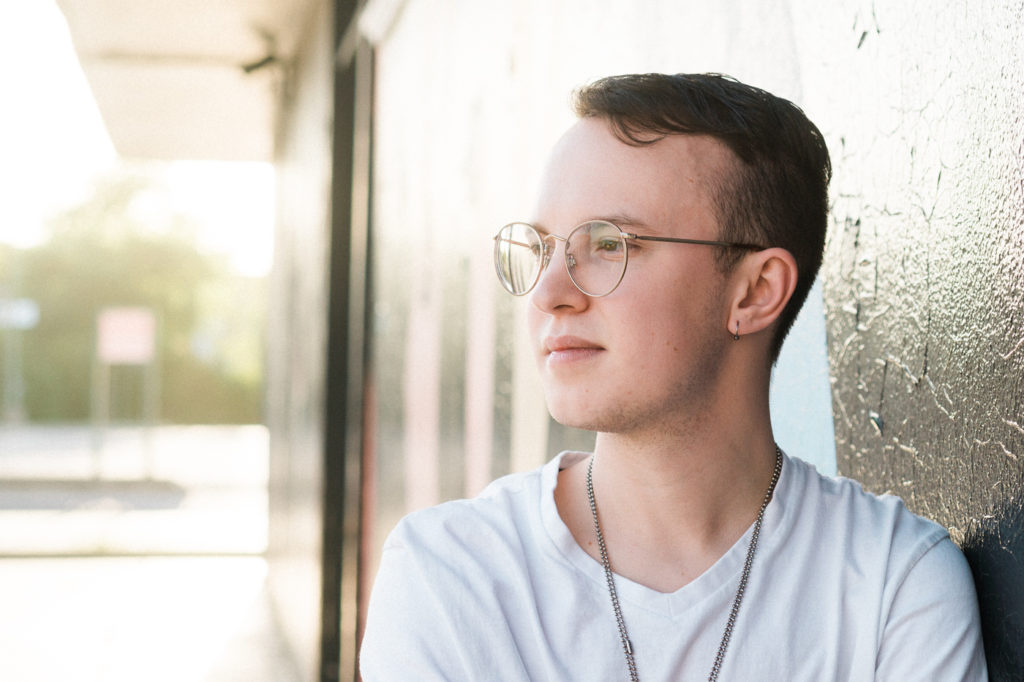
PIP: And when did you realize you were actually trans?
MT: When I was 16, in my sophomore year of high school, I told my parents that I was trans. I figured out I was trans in the summer of 2013. I had a full breakdown in front of a friend of mine. I was completely confiding in her about the severe depression and suicidal tendencies I’d been experiencing. She handled that better than she should have! She said, “I’m going to show you something; I want you to watch this YouTube video.” I was like, “What the hell, I just poured out my heart and soul to you, and you want me to watch a YouTube video?”
It was a trans man talking about his journey and his experience, and I was watching somebody put into words things I’d been experiencing for a long time. I felt like, oh my God, this is what I’ve been trying to say for so long but didn’t have the language for.
I was still just playing around with the idea, like, “I’m not really trans because I don’t hate everything about femininity, and I don’t want to say I’m a guy and have to take it back.” So I was trying to educate myself. One day that fall when I was on the computer, my dad came into my room. I felt like he shouldn’t see what I was looking at, because it was about trans guys and I didn’t want to have that conversation yet. I shut my computer really fast, trying to pretend like I didn’t do anything.
My dad saw that, and because of my history of not being honest and having done suspicious activity online, he was like, “What are you doing? You need to tell me right now; this is not OK.” I felt very intimidated and scared, and I had so many things in my head.
I said, “I think I’m a boy and I think I’m trans. I want to be a boy.” He looked confused, and I wasn’t really sure what to do. So he left the room, and I didn’t come out of my room that night for dinner. I just stayed in there. I didn’t know what we were going to do. I avoided my parents until the next morning when I came out into the kitchen to go to school.
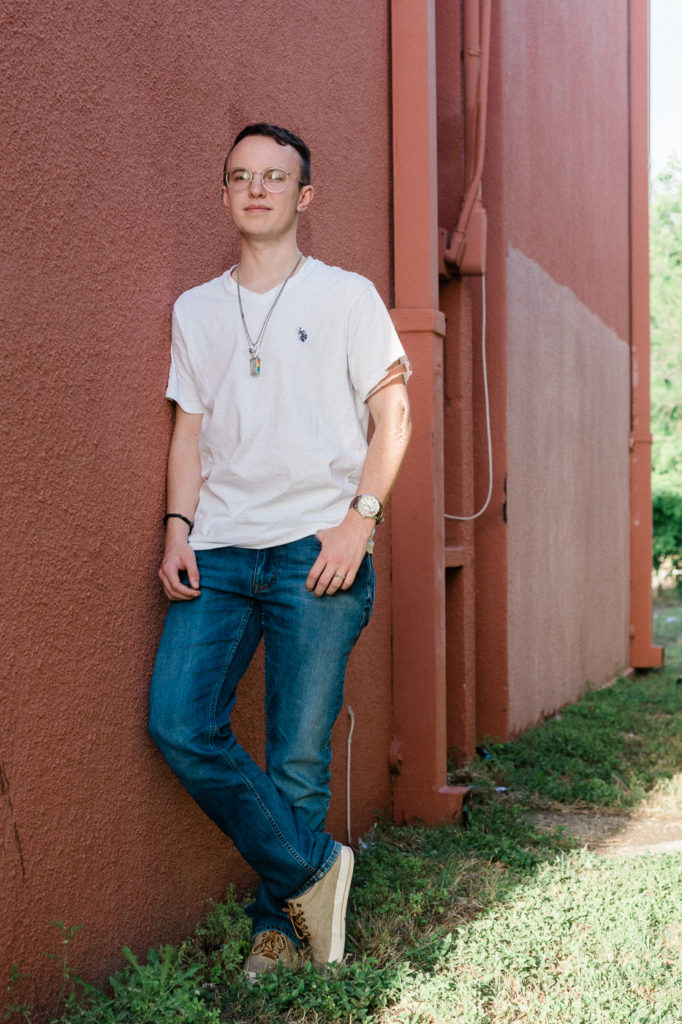
My mom was like, “We scheduled you an appointment with your therapist during the lunch period; you should go talk to her.” I figured the cat’s out of the bag; what are you gonna do. At the therapy session I told her what happened, and she said, “Just tell them, and explain it in more detail — don’t just leave it at once sentence. That’s not going to help you.” She helped me write a letter, and I came to my parents with the letter.
I said, “I have this written down because I need to say everything. I know you’ll have questions and want to say things.” Because something my parents and I would struggle with is I’d try to say something about how I feel or am experiencing, they’d have a question, and I’m so ADD I’d get off track with my original point. So I said everything I needed to say, and everyone was crying. My parents cried more than me, because I’d never before expressed to them how bad my depression had been. They knew it was bad, but they weren’t privy to the fact that I’d attempted suicide and the fact that I had suicidal thoughts and was continuing self-harm. They were very shocked by that.
They tried their best to be supportive of me. A month or so later after I told them, homecoming was coming up. I asked my mom if we could buy me a dress shirt and slacks. She said fine. She didn’t enjoy the experience at first, but after that, as time went on, they both progressed into being the best support system I could ask for. They found the clinic where I got my testosterone; they were the ones who found and got me started with the process of getting top surgery and who were there taking care of me in recovery. They’ve done interviews with me; they’ve just been the best parents they can be.
It wasn’t until I got into college the idea of dating men had popped back into my mind. I figured, “Why not, I’m young,” so I got on dating sites and tried dating anyone; men, women, non-binary people. I started identifying as queer because it’s very open and fluid in its interpretations, and that’s how I now view my sexuality.
PIP: One common thread I’ve noticed in my interviews with trans people is many realized they were assigned the wrong gender as young as ages 3 to 5. Looking back, do you think you knew when you were that young, or did you not realize it until your teens?
MT: It definitely did take a while, and I have my wonderful parents to thank for that. My parents were never once the kind of parents who said, “You can’t do this because you’re a girl,” or, “This is a boy thing or girl thing.” There were no gender roles whatsoever in the house I grew up in. So I wasn’t at all thinking that I was different from girls, because I was just raised to think that everyone does this. There are things that when I look back on, I realize they were probably a sign.
But in my mind and in my parents’ minds, they just had a very masculine daughter and it was like, so what, she’s a tomboy, that’s fine. I think everyone assumed I’d eventually be a lesbian since I presented as masculine and my mom and dad both have a sister who’s gay. I was just cursed at this point to end up queer! When it was happening, nobody would have thought, “This is what transgender people look like,” because I don’t think any of us knew that language. But then when we all learned this is what it is, and we look like back, we’re like, “Shit, if we’d all known that, we could have caught up a long time ago!”
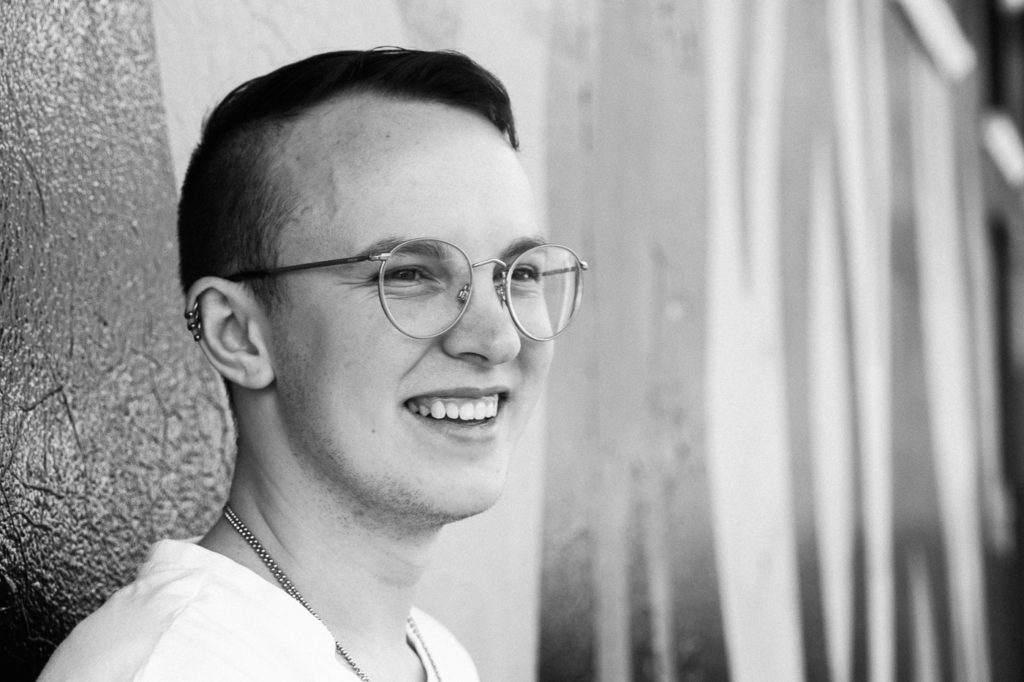
PIP: That’s such an interesting point, that if you grew up in a home with gender roles, it would have been more obvious. I’ve heard many trans people say that as young kids they were caught in the opposite sex’s clothes and scolded, which reinforced early on that it wasn’t OK to act outside of certain gender norms.
MT: Yeah, and originally I actually struggled with that. That was part of why I was trying to educate myself after my friend showed me this world. People I talked to said, “I knew as a little kid. I did this thing and my parents scolded me for it since that’s not what boys do.”
I didn’t have any of those memories or feelings, so I was like, “Then maybe I’m not trans.” It took me a long time to come to terms with the thought that since I didn’t know when I was young, that put me outside of the typical statistics, so I felt like I wasn’t valid enough to call myself trans.
I’ve come to terms with it, because I didn’t have the gendered home that a lot of kids had. That memory couldn’t have been built. And I think it’s those memories in kids that sparks that, “Oh, if I’m not this, I must be the other,” and if I don’t have that, of course I’m not going to figure it out until later.
For me, it was definitely puberty and my social surroundings that I think triggered a lot of the “I’m different from other kids” thoughts. Because that was when people started saying you need to shave your legs, and if you’re going to the dance you should wear a dress instead of just jeans and a T-shirt. When I got older and the gender disparities became bigger, that was when I realized, “This is not me, and that’s not what I want.”
When I learned about homosexuality, I was like, “This is it, I’m gay. Gay women are butch sometimes, that’s how things work.” For a while that was the Band-Aid on the bleeding wound. Eventually I wondered, “Why am I still not happy? Why am I still so sad all the time about the way I look? Why do I have all these insecurities that other people don’t have?” Until eventually I was able to find the language to express it.
PIP: I hate that your positive experience growing up without gender roles made you feel inadequate as a trans person later on. Especially when it seems to me like it would be a gift to not have those damaging experiences so many have of being scolded for expressing themselves authentically.
MT: Yeah, it was one of the better things too, and I know that now, reflecting on it. I’m very grateful they did raise me that way. That was the other thing that made me feel good; often times whenever you hear the coming out stories, parents say they blamed themselves. I loved that I had my experience, because I was one of two girls. My sister is very cis and she’s very happy with her life.
The fact that we were both raised by the same people, and one of us is like, “I’m a boy because I am this way,” and the one was like, “I was also raised with no gender roles but I’m happy with my lipstick and my dresses” — that made me feel really good, because I know my parents can’t try to blame anything on themselves.
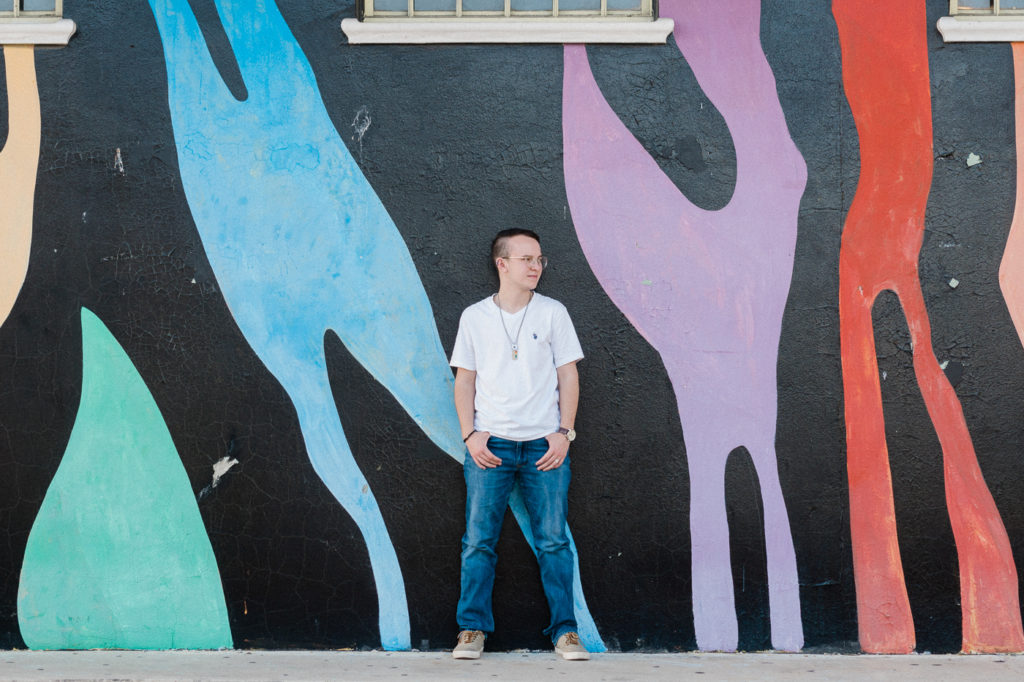
PIP: Absolutely. Now I know you volunteered with an organization called Gender Spectrum — what did you do in that role?
MT: Gender Spectrum is a nonprofit based in San Francisco, California. I hadn’t heard of it until one day my therapist said, “I saw this Facebook posting for an application to a national youth leadership thing, and I think you should do it. I’ve seen you when you’re in group, sharing your experiences and trying to be a role model toward younger queer kids. I think it would be really great for you to share that on a different scale.”
So because my therapist told me to, I applied and I didn’t really think much of it. Then I was accepted! From 2015 until 2017, I was a member of the National Youth Council with them. We did some work online; we did a website portal called The Lounge, like a little Facebook to Tumblr they have specifically for people looking for resources. They work a lot with very young gender nonconforming kids and their parents.
I helped create and conduct several workshops with them during their yearly conferences. I haven’t gotten the chance to do much with them since I had to step down from my leadership role because it’s for youth and I aged out, but I always mention them whenever I’m out there working with LGBTQ people because they’re a small little organization and they do a lot of great work. It’s not directly in Texas, but it’s out there, and it’s a free resource most of the time.
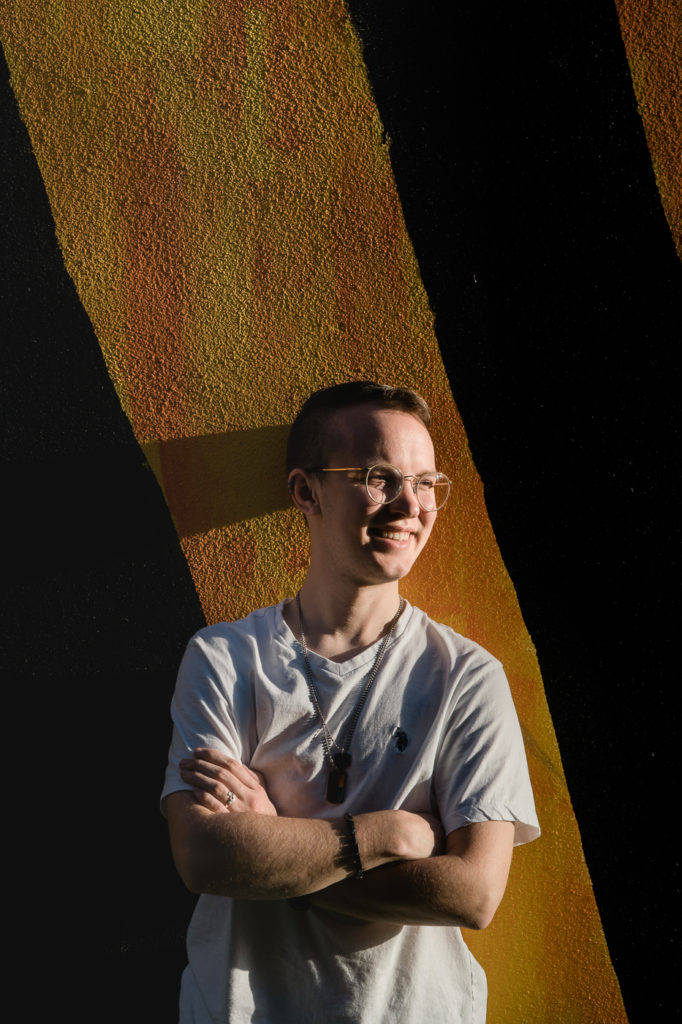
PIP: I know you’ve also done speaking on behalf of the clinic in Dallas that helped you transition?
MT: Yes; in 2015 I became a patient of Dr. Ximena Lopez; she’s the head physician of the GENECIS Clinic at Dallas Children’s Hospital. I believe it’s the only specifically transgender youth clinic in Texas. They take in minors who are looking for hormone replacement therapy. I myself, a former roommate of mine, and a good handful of my friends in Ft. Worth have all gone through the GENECIS program, getting HRT through there.
They gave me resources for the first gynecological appointment I ever had. They connect you with doctors they work with, so I’d be in an office where they understood the nuances of trans health and how not to do things, especially with gynecology and a trans man.
It’s one of the only clinics in the country like it. They said, “People want to talk to us and to our patients; will you sign something so people can contact you to speak about these things?” My mom and I were like, “Sure, whatever.” Next thing I knew, I was interviewed by a local news station who had reached out to the program looking to talk to trans people when they wanted to do a piece.
Originally it was going to be on the bathroom bill, but they turned the piece into stories about the staggering suicide rate that young trans people have and the challenges they face. When the Orlando shooting happened, the local Texas Public Radio station reached out to them, wanting to speak to some LGBTQ people about what the shooting felt like to us and how the current climate towards queer people affects us and our families.
They interviewed me, my mom, and my dad. Then they did a photoshoot at one point for a national magazine. I didn’t end up in the article, but the photographers did put up the photos in a gallery in Dallas a summer or two ago.
PIP: I know you’re also involved with a group called Spectrum at your college, UTSA. How are you involved, and what you do?
MT: Right now I hold the position of treasurer as an executive member with Spectrum. I also hold the position of a co-leader with the Queer Trans Caucus. We have several caucuses within the organization; they’re basically just smaller groups that invite and work with people on issues. For example, there’s the gay men’s group; there’s Sapphic, which is the woman loving woman caucus; there’s Bipan for bi and pansexual people; and there’s us. We are basically the gender caucus, and then there’s another one called QWAC: queers with artistic capabilities.
What we do is mostly community building. The group has gone through lots of changes over the years. Some years it’s been a political thing, and in some years it’s just a home for a queer people. When my fellow officers and I came into power a year ago, we decided we’d make it a community building thing because that was the big need we saw. The kids who come here are looking for other queer people so they can build their friend group and have solidarity — especially the freshmen.
We participate in volunteering, and we’ve worked quite a bit with Unify, a free sexual health program. We’ll hold events with them and offer free HIV testing. We’ll have people tested to get in, and in return they’ll give us space to hold a game night. We’ve done work with Beat AIDS, and they get their message out while in exchange we get to give out some free condoms.
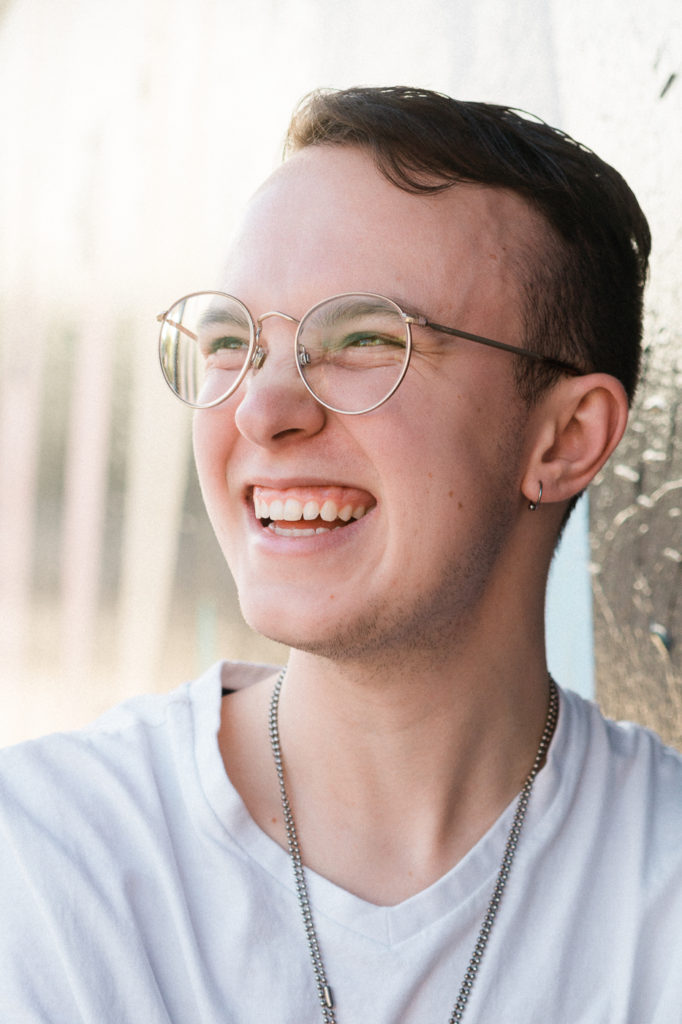
PIP: That sounds like amazing work. Why do you believe trans visibility is so important?
MT: I guess for me, the biggest reason I fight so hard for visibility is because I know if it wasn’t for someone being visible on that YouTube video, I might not have found the voice I needed to express what I was going through, and more than likely I would have become a sad statistic of suicide. I know that for a fact; I was in such a dark place.
Somebody sharing their voice caught one person who happened to be close to me, and that one voice did a lot of saving for me. I know if one person did that for me, it might have done that for a bunch of other people. I’m a good speaker, I’m very funny, and I’m approachable, so I know that if I make my voice loud enough, it could help other people like the person in the video helped me.
I know for me, the struggles I had with my sexuality and my gender felt very isolating. I grew up in an area with all of these white cis straight people, and I wasn’t a part of the community I was submerged in. So when you get to see those people being visibly queer and being visibly trans, it really does make it feel OK that you feel off from everyone else, because you’re not alone.
PIP: What does the future hold for you?
MT: For now, it holds a lot of homework! I’m about three semesters away from graduating at UTSA with my bachelor’s degree in biology along with a secondary education teaching certification. The call is to be a biology teacher here in Texas.
For me, it’s the same reason I do visibility; I find it so important that I’m visibly queer, because I know one person can change a lot for someone else. I felt that same push with my educators; I had teachers who were absolutely a part of the biggest changes in my life, and I know plenty of other kids who felt the same way, so it seems like the right fit.
I don’t think I ever knew a gay teacher or a trans teacher. While that might have to stay on the hush-hush for the sake of job security, I know maybe a kid or two might see that, and help them out by being both their teacher and an example of someone like them.
Big thanks to Parker Radbourne of The PK Photographs for taking all of these incredible pics of Matthew on a pro bono basis to help us better tell the stories of the LGBTQIA community.

